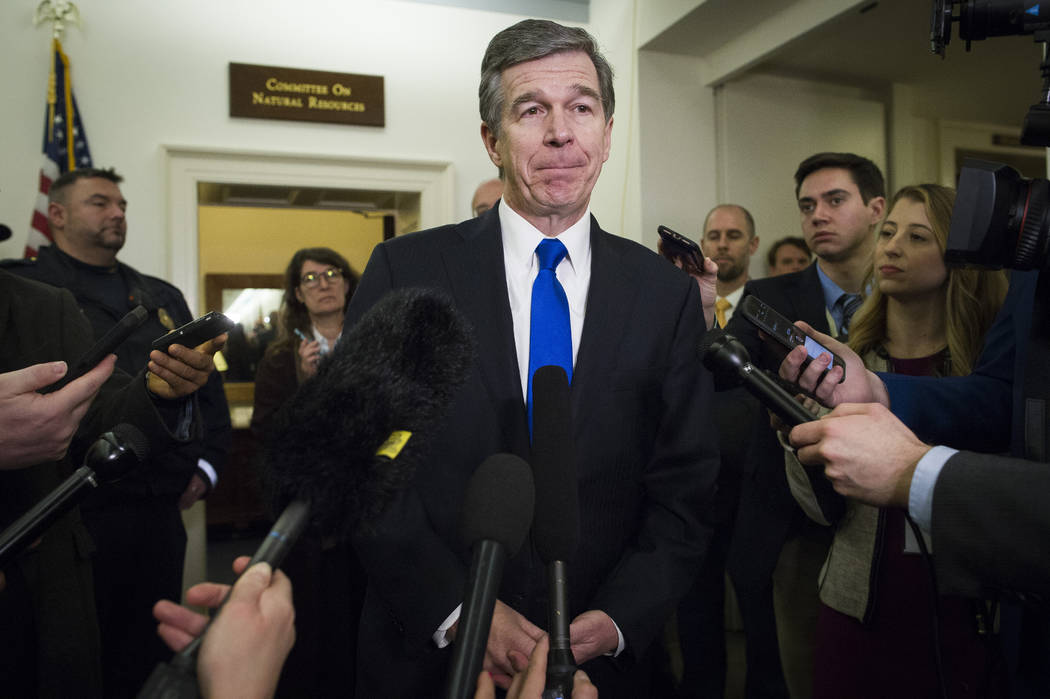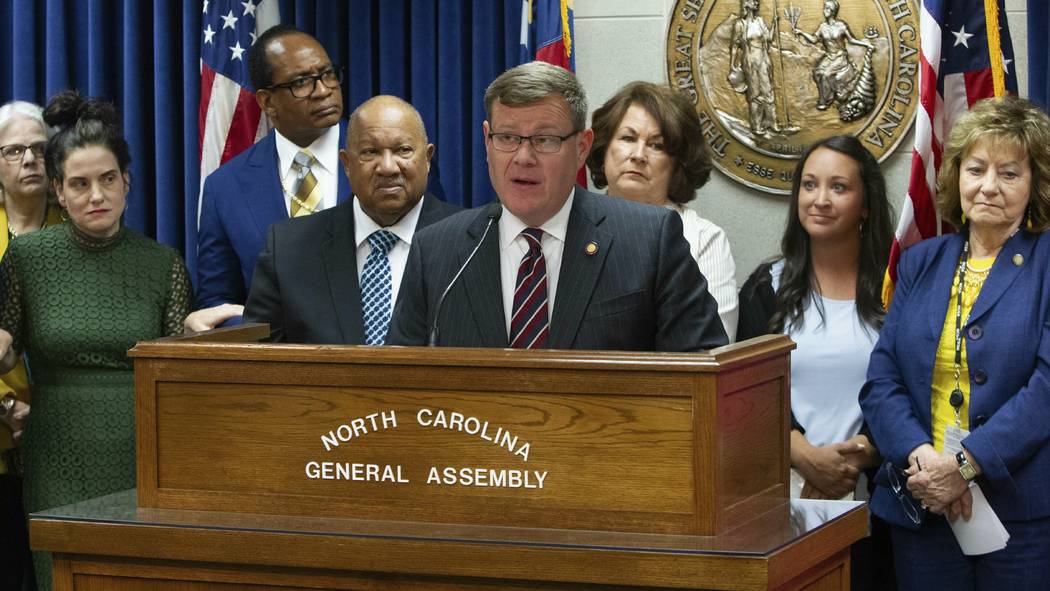North Carolina GOP fails to override ‘born alive’ bill veto
RALEIGH, N.C. — North Carolina Republicans failed on Wednesday to override Democratic Gov. Roy Cooper’s veto of legislation that would have created a new crime against doctors and nurses who fail to care for an infant delivered during an unsuccessful abortion.
Enough Democrats sided with Cooper to block the override, which required 72 votes of support. The vote was 67-53 in favor of the override. The Senate had voted to override in April.
The unsuccessful override, after nearly an hour of debate, hands a victory to abortion-rights groups and allied lawmakers after a series of legislative defeats in recent weeks in other states, such as Alabama.
The “born alive” measure would have directed health care practitioners to grant newborns delivered after an abortion the same protections as other patients. Violators would have faced prison time and fines. Cooper’s veto message said the measure was an “unnecessary interference between doctors and their patients,” and laws already protect newborns.
“Instead of passing unnecessary legislation for political purposes we need to move on from divisive social issues and focus on the needs of North Carolina families,” such as health care, education and good jobs, Cooper spokeswoman Megan Thorpe said in a release after the vote.
GOP Rep. Pat McElraft of Carteret County, the bill’s chief spokeswoman in the House, accused Democrats of making blocking the bill their top legislative priority.
“We are obviously horrified this veto override failed,” she added.
President Donald Trump has expressed support for “born alive” bills. The Wisconsin legislature gave final approval to a similar measure earlier Wednesday, and Democratic Gov. Tony Evers already has promised to veto it.
Wednesday’s actions were the latest in a recent string of state abortion legislation. In Alabama, GOP Gov. Kay Ivey signed a bill that makes performing an abortion a felony in nearly all cases unless necessary for the mother’s health. The law provides no exception for rape and incest. Governors in Kentucky, Mississippi, Ohio and Georgia have approved bans on abortion once a fetal heartbeat is detected, which can happen as early as the sixth week of pregnancy.
The North Carolina House vote reflected the new partisan makeup of the House and Senate chambers since January, when six years of veto-proof GOP majorities ended after Democratic seat gains in November. Now, Republicans must get help from a handful of Democrats to override Cooper’s vetoes.
Although four House Democrats initially voted for the “Born Alive Abortion Survivors Protection Act” in April, only two of them stuck with the measure Wednesday — Reps. Charles Graham of Robeson County and Garland Pierce of Scotland County. Republicans in the state Senate needed to capture the vote of just one Democrat for an override, which they did soon after the abortion veto.
But that Senate Democrat was immediately targeted by abortion-rights groups for a primary next year — something that surely got the attention of any House Democrats on the fence.
The vote occurred as supporters and opponents packed the House gallery. Some people seeking the override wore lapel stickers reading “I Vote Pro-Life,” while others backing Cooper’s veto wore pink, some with T-shirts saying “Protect Safe, Legal Abortion.”
Sarah Newton of Raleigh, a Planned Parenthood volunteer who watched the debate, said she was pleased that the legislation won’t take effect but worries anti-abortion groups will try to find another angle to attempt to erode abortion access.
“They want to do everything they can to attack abortion rights,” Newton said.
Republicans urged colleagues in emotional appeals to put aside party labels to protect newborns however they are delivered.
“This vote is a vote for life. It’s a vote to protect children that are born,” said Rep. Michael Speciale, a Craven County Republican. “Whether they’re left to die there is going to be up to you.”
Bill opponents have said North Carolina doctors already are regulated by medical boards and physicians aren’t neglecting these newborns.
“By practice, and according to the law of North Carolina, as well as federal law, all living infants in North Carolina are legally entitled to the care that they need,” said Democratic Rep. Deb Butler of New Hanover County, the only legislator Wednesday to speak against the bill. The measure, she said, would have created “division between caregiver and patient.”
Bill supporters attempted a full-court press before Wednesday’s vote, bringing in two women who said they had survived unsuccessful abortions in the 1970s and 1980s.
“Everyone has value,” Gianna Jensen said at a Legislative Building news conference before the vote, describing a 1977 saline abortion in California that she survived. “I’m so grateful to be alive.”
Still, the frequency of doctors neglecting these live infants is unclear.
The North Carolina Values Coalition said five states have reported at least 25 children were born alive during attempted abortions in 2017. North Carolina keeps no such statistics. The Centers for Disease Control and Prevention has reported more than 140 infant deaths in induced terminations nationwide from 2003 to 2014. It hasn’t specified what level of care those newborns received.
Associated Press writer Amanda Morris contributed to this report.


















